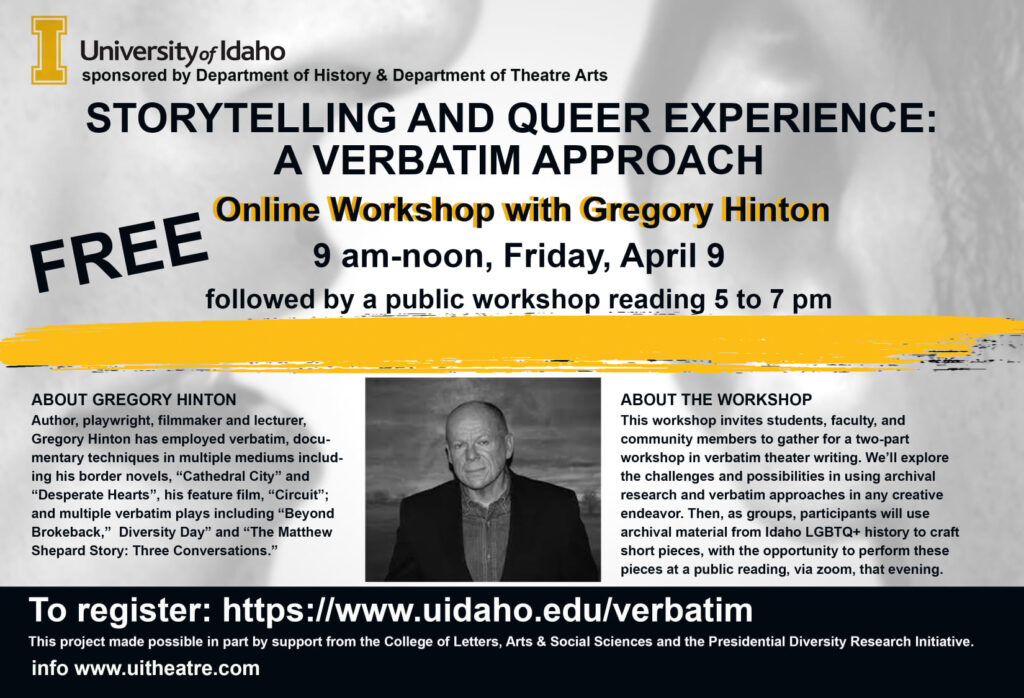Yesterday, I was fortunate to attend an online workshop with Gregory Hinton to get a taste of verbatim theatre writing–creating playscripts from oral history interviews. I’ve worked with oral histories as a researcher with Palouse Anthropology and I’ve written plays but I’ve never combined the two practices. The playwright in me was stoked to mess around in a new technique. The researcher not so much.
There’s a responsibility when someone gives you their story. I see it as an act of trust. When we do our interviews, there’s a review process with the narrator. It gives them an opportunity to clarify, add, and if they wish, remove items from their narrative. It is a gift when they share their stories of triumphs and challenges. Their stories never becomes yours to do with what you will.
Then as a playwright working on these, I became very much aware of how we could still keep quotes from the stories intact and yet with surrounding dialogue frame them in such a way as to use someone’s words against them. It was a reminder of the power of language and how even word placement can influence a listener and shape meaning.

That evening we read our little pieces and then Gregory read “Walking Steven Home which he created from the family impact statements at the sentencing hearing of Steven Nelson’s murderer in Boise five years ago.”
I knew Steven Nelson as part of the local Moscow scene. He was the night manager of Shari’s where I wrote a portion of my masters thesis and logged many an hour in coffee klatches with my friends devising theatre projects.
He often stopped by the table to chat us up. I remember him as the friendly, well-dressed fellow who couldn’t wear a suit. They never seemed to hang on him quite right, but that never mattered. He had his own kind of charm. He once regaled us with why he was sporting a spikey haircut. In the end as I recall he had given it to himself. I’m not sure though. There were a lot side stories along the way and laughter.
Steven’s end was not funny. He was lured into a remote area outside of Boise and brutally beaten for being homosexual. Steven had walked, naked and barefoot, half a mile before he could find help. He died of his injuries the next day.
It was these harrowing events that Gregory drew from to create Walking Steven Home. At the reading, he started quietly. It was similar to the ones we had done but obviously not as clumsy. One character spoke then the next and the next. Then slowly, Gregory began to work in his own words announcing a brief break from the transcripts and weaving us back in.
I wasn’t aware of it happening but I could feel it like a storm summoned. Even through the Zoom, it was evocative. The hair came up on my arms. And at the scripts conclusion emotionally I was in tatters. And it was just Gregory reading. There was no fancy effects. No spectacle. So great feats of acting played against each other. It was one man reading the scripts prepared from true events.